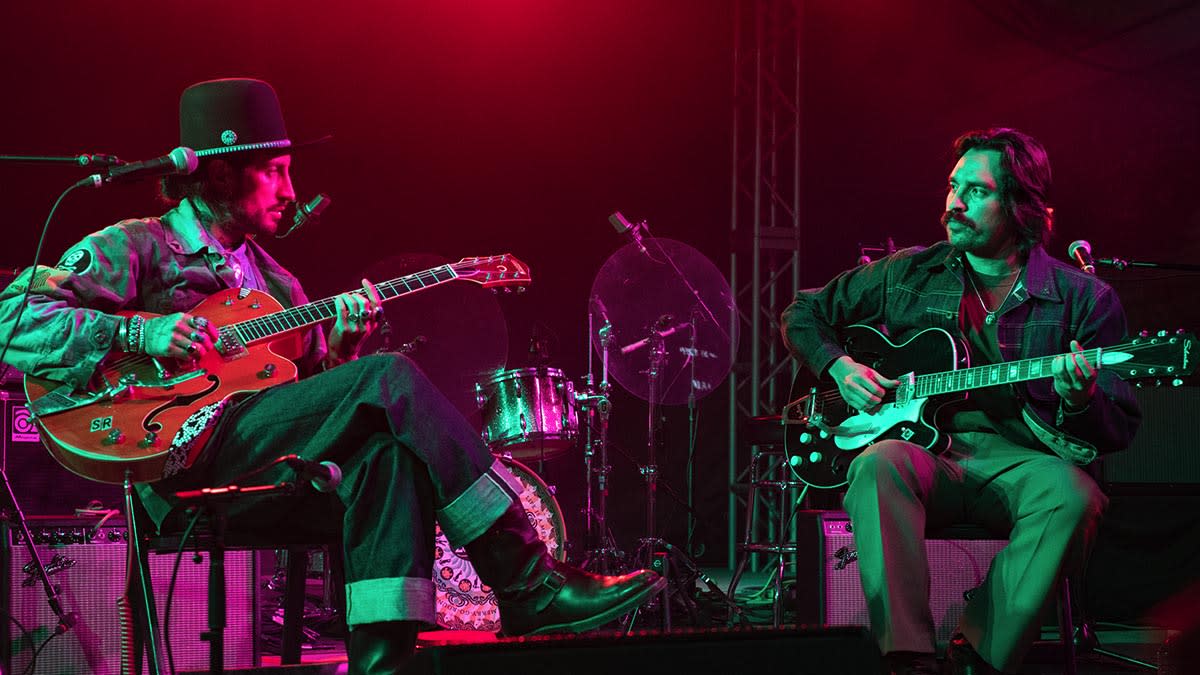Hermanos Gutiérrez: “It always starts as an individual trip for us. Most of it is non-communicative; it just happens”

- Oops!Something went wrong.Please try again later.
The brothers behind instrumental guitar duo Hermanos Gutiérrez, Alejandro and Estevan Gutiérrez, never set out to make music together. But their collaboration was destined to happen.
Growing up in Switzerland, Alejandro began playing nylon-string guitar around age 10, learning the fingerstyle associated with the Argentinian folk music, milonga, and salsa he loved. Estevan didn’t pick up the instrument until years later, while Alejandro was away in Ecuador. They never played together until one night, when Estevan invited his brother to visit.
“We missed each other ’cause we didn’t see each other as much as before,” Alejandro says. “He showed me an idea of his and said, ‘Something is missing. Maybe you can just play what you feel.’ And then we started to play, and his roommate came into the room and said, ‘Wow, this sounds amazing. You guys have to play concerts. You have to record, you have to start a band.’”
Hermanos Gutiérrez’s music evokes the vast emptiness of windswept high-desert plateaus, deep canyons and other lonely landscapes. Over five albums, they have mastered the art of creating evocative, cinematic textures, using slapback echo and reverb – primarily from their Strymon El Capistan tape echo delay pedal and Strymon Flint reverb – plus wobbly tremolo and the rhythms of milonga and cumbia to create sonic journeys.
“It always starts as an individual trip for us, and then when we think we have something, we share it,” Alejandro says. “And there’s always a part which is missing, which is my brother’s part, or the other brother’s part. Most of it is non-communicative; it just happens. We trust each other.”
For the duo’s sixth album in as many years, El Bueno Y El Malo, they teamed with the Black Keys’ Dan Auerbach at Easy Eye Sound in Nashville. It was their first time working with an outside producer, and the first time they didn’t have their songs mapped before recording.
“My approach in the studio changed a lot with that experience,” Alejandro says. “I didn’t really know what was going to happen in the studio, so I had to trust a lot in my capabilities of playing the guitar. And that meant [being] in the moment where you have to deliver, and having that trust that it’s gonna be all right.”
El Bueno y el Malo is out now via Easy Eye Sound.

